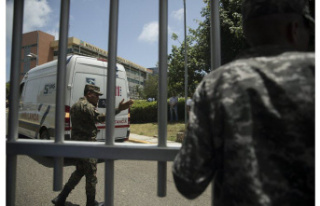European countries surrounding Serbia have shut down their airspace to Sergei Lavrov’s plane. He was due in Belgrade Monday. According to Vecernje Novosti (Serbian daily), these are the three neighbouring countries of Serbia. They are all members of NATO or the EU and include Montenegro, North Macedonia, Bulgaria, and North Macedonia. Therefore, the Russian Foreign Minister could not visit the Serbian capital.
Serbia is not following Europeans' lead and trying to isolate Russia. Belgrade is even trying to improve its relations with Moscow. Serbia has now reached a "very favorable agreement" for the supply of Russian natural gas for three-years, as announced by Aleksandar Vucic, Serbia's President. This is, according to the Head-of-State, "by far" the best deal in Europe.
Gazprom bought the majority of NIS' capital in 2008," he said. Loic Tregoures is a doctor of political science at Paris's Catholic Institute of Paris and a specialist in the Balkans.
Aleksandar Vucic, the UN resolution author, assured support for "the territorial integrity" of Ukraine at the start of the conflict. Serbia voted for the UN resolution that condemned "Russian aggression against Ukraine". This country with seven million people is still the only European, except Belarus, that has not taken sanctions against Russia.
The position of President Vucic vis-a-vis Russia and the EU seems to be in line with the wishes of the Serbian people, who overwhelmingly re-elected him in the first round in April 2014.
Today, there is a strong Russophilia in Serbia. This was born out of opposition to the West and takes root in NATO's bombardments on Belgrade during the Kosovo war in 1999. Loic Tregoures says that the Serbs feel they were victims of NATO aggression in 1999. "There is still trauma and strong resentment towards NATO. The reason why the Serbs, unlike other countries in this region, are strongly opposed to NATO, and reserved about the European question.
According to Vuk Vuksanovic (researcher at the Center for Security Policy, Belgrade), this Serbian "Russophilia” "doesn't necessarily have anything in common with the war in Ukraine".
Russia's attractiveness is tied to its perception as an alternative model to West (...). It is seen as a powerful enough power to upset the West. The war in Ukraine could also be seen as an act of "revengeance" against American hegemony.
Vuk Vuksanovic
Loic Tregoures says that this sentiment was reinforced when Kosovo declared independence from Ukraine in 2008. This status is now recognized not only by the European Union but also by Canada and the United States. Russia, which has yet to recognize this independence, is considered "political support" for Serbia, according to the researcher.
In Serbia, protests were not as strong in the initial weeks of the conflict in Ukraine. In Serbia, thousands of far-right nationalists marched on the streets in March to support Putin's invasion. Loic Tregoures says, "What happened to Serbia, I haven’t seen it elsewhere."
Belgrade was invaded by Serb protestors on May 9, which is the anniversary of the defeat of Nazism by the USSR in 1945. Some displayed portraits of Putin or the letter Z.
Russia is highly treated in the Serbian media space controlled by the regime. Loic Tregoures says that Russia is treated so positively that it is felt by the public. It is not a Russophilia as such, but a "poutinouphilia" which is observed in Serbia, according to the researcher.
Vladimir Putin is regarded as someone who helped a down country. In a way, Putin is someone who avenged Russia's humiliation in the 1990s. He also stood up for himself against the West and the Americans. This speaks volumes to Serbs, who feel they were victims of an historic injustice in 1990s.
Loic Tregoures
In Belgrade, there were even tags to pay tribute to Vladimir Putin after the Russian invasion of Ukraine. It is not unusual to find T-shirts and other merchandise bearing the image the Russian president on the streets. Loic Tregoures says, "He's a rockstar there."
Even though it has avoided any criticism of Russia since the start of the war Serbia is still a candidate to join the European Union and has been since 2011.
It is not possible to motivate Serbs in a large way by a candidacy. Le Courrier des Balkans has reported that 44% of Serbs are against their country joining the European Union if there was a referendum. Only 35% would support it. Serbia's entry to the EU would be opposed by more people than it is favorable for the first time in 20-years.
Vuk Vuksanovic said that there is disappointment in Serbia regarding the European project. He also noted that people are less enthusiastic about Serbia joining the EU because they believe their country will not join it regardless of whether or not Russia complies with sanctions. Loic Tregoures believes that the accession process, which was launched in 2011, but has not made much progress, is "at a halt". He adds that "so few levers" are available to force President Aleksandar Vucic into imposing sanctions on Serbia.
The Serbian president has been trying to walk the tightrope between Russia and Europe. In a few weeks, the EU and Balkan candidate countries, including Serbia, will meet. This could give European leaders the opportunity to pressure the Serbian president to pick his side. Loic Tregoures is a candidate for the EU, but his country is also heavily Russophile, and highly dependent on Russia politically and energetically. "He has a lot of to lose choosing one side over another," he said.












